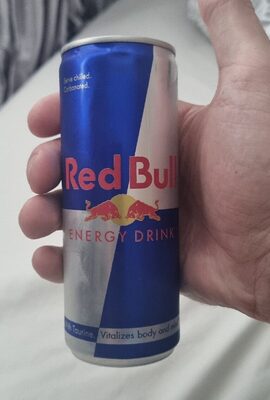
Barcode: 90454615
Red Bull
HALAL
📝 Reason: Based on the provided ingredients for Red Bull, all listed food additives (E codes) are Halal according to major Islamic certifiers. Taurine in modern drinks like Red Bull is synthetic and Halal. The only potentially doubtful ingredient is ‘flavorings’ due to non-disclosure of source – it could include alcohol as a carrier or animal-derived substances. In Islamic law, certainty is required for permissibility (Quran 5:3). No ingredient here is clearly Haram, but ‘flavorings’ raise doubt; thus, overall Halal_Result is 2 (Doubtful).
🏷️ Category: Beverages, Energy Drinks
📄 Certificates: Green Dot, Vegetarisch, Vegan
Ingredients:
Details
Is Red Bull Halal? Uncovering its Status
Red Bull is one of the most popular energy drinks globally, known for its unique taste and energizing effects. However, for many consumers, especially within the Muslim community, it is essential to ensure that products consumed meet Halal standards. In this article, we will explore the Halal status of Red Bull, delve into its ingredients, and provide clarity on any potential concerns.
Understanding Halal Certification
Halal refers to what is permissible or lawful in traditional Islamic law. For food and drink to be labeled as Halal, all ingredients and processing methods must comply with Islamic guidelines. Products are often certified Halal by recognized institutions which verify that they meet these standards.
Red Bull Ingredients Breakdown
According to the ingredient list for Red Bull, it comprises a variety of components. Let’s analyze each one in detail to assess their Halal status:
Water
Pure water is inherently Halal. It is considered a basic necessity and is fundamental in various food and beverage formulations. (Source)
Sucrose
Sucrose is the common sugar derived from sugarcane or sugar beet and is Halal under normal conditions. However, if it is processed using animal bone char, it could raise concerns. In Red Bull, no such indication exists, making it generally Halal. (Source)
Glucose
Glucose, another sugar, can be derived from various sources, including plants. Unless sourced from a non-Halal provider, glucose is Halal. (Source)
Acid (Citric Acid)
Citric acid, known as E330, can be either synthetic or plant-derived. It is typically Halal and is found in various halal food lists, affirming its permissibility. (Source)
Carbon Dioxide
Carbon dioxide is a natural gas used for carbonation. It is considered Halal as it poses no issues with regards to halal standards. (Source)
Taurine (0.4%)
Taurine is a compound once thought to be animal-derived. However, modern taurine in energy drinks is often synthetic and thus regarded as Halal. (Source)
Sodium Carbonates
Sodium carbonates are minerals that are Halal and widely used in the food industry, further ensuring the Halal status of Red Bull. (Source)
Magnesium Carbonates
Similar to sodium carbonates, magnesium carbonates are mineral-based and Halal. They are safe to consume within the Halal dietary laws. (Source)
Caffeine (0.03%)
Caffeine is primarily derived from plants or synthesized. In Red Bull, the caffeine present is considered Halal. (Source)
Vitamins and Flavorings
- Niacin (Vitamin B3): Usually synthetic or plant-based, hence Halal.
(Source) - Pantothenic Acid (Vitamin B5): Typically Halal unless the carrier is non-Halal. There’s no evidence of concern here.
(Source) - Vitamin B6: Commonly synthetic and Halal.
(Source) - Vitamin B12: Often synthetic or fermentation-based. It’s Halal unless grown on non-Halal mediums.
(Source) - Flavorings: This is a grey area due to lack of clarity. Flavorings may include alcohol as a carrier. Therefore, this raises uncertainty about its Halal status.
(Source)
Colors
- Color (Plain Caramel, E150a): Halal as long as it’s produced without Haram substances.
(Source) - Color (Riboflavins, E101): Generally Halal unless derived from non-Halal sources.
(Source)
Final Thoughts on Red Bull’s Halal Status
Based on the ingredients listed, Red Bull is primarily Halal, with the exception of the unclassified ‘flavorings.’ This causes a level of doubt regarding its Halal status. While all other components are approved by major Islamic certifiers, ‘flavorings’ add an element of uncertainty, resulting in a classification of Halal Result 2 (Doubtful). As per the Quran 5:3, certainty is required for permissibility. Therefore, it is advisable for consumers to make informed choices or reach out to the manufacturer for clarification on flavorings used.
Conclusion
In summary, while Red Bull appears Halal by most standards, the ambiguity surrounding the flavorings raises concerns. Consumers looking for Halal energy drinks may want to consult additional resources or authorities for further information.
